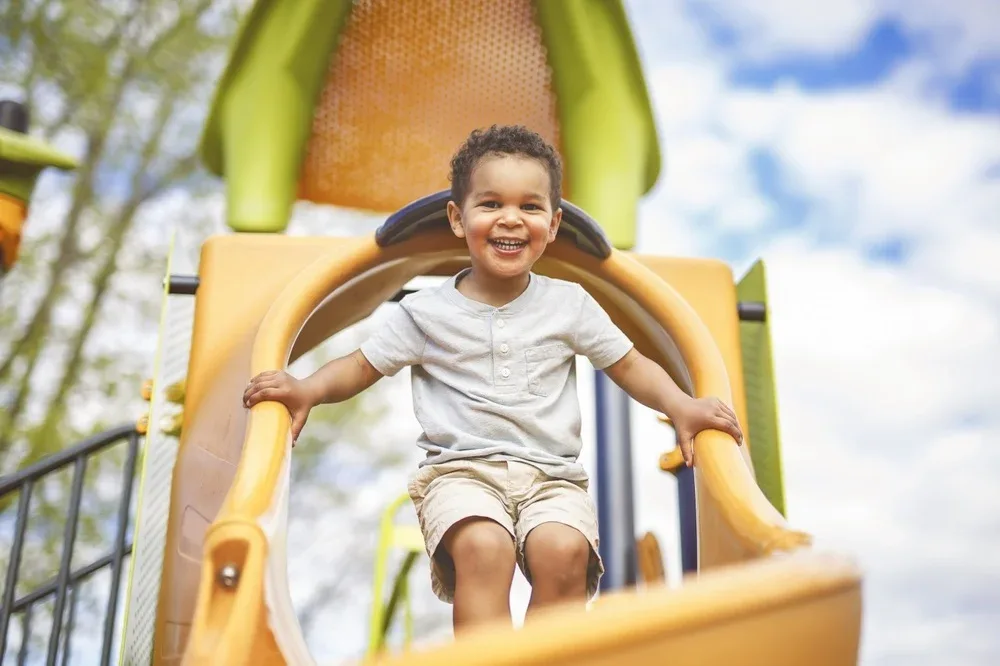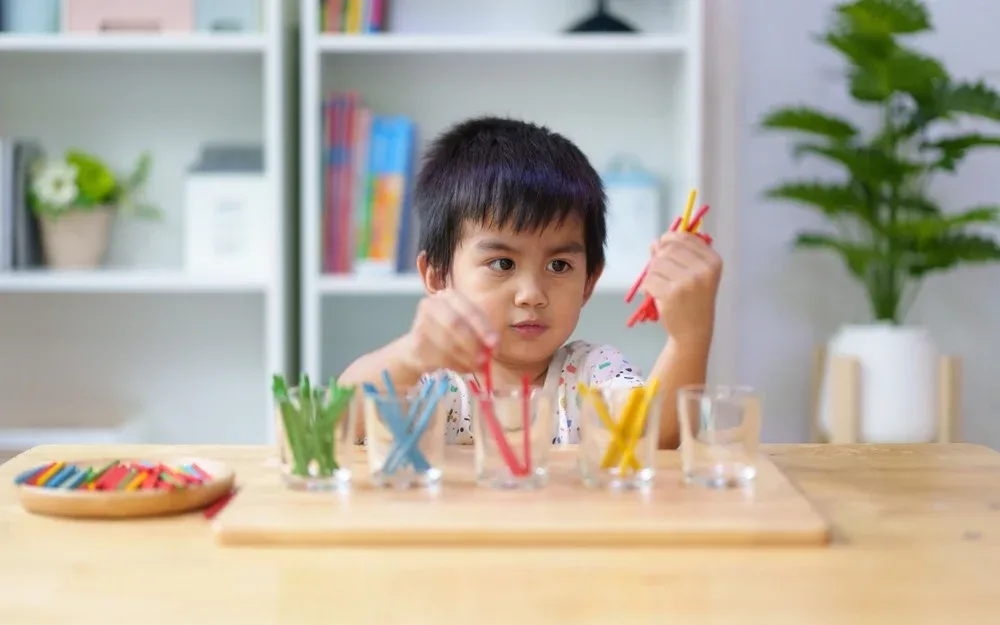
The early years of a child’s life are critical for their growth and development. For three-year-olds, daycare and preschool settings offer a nurturing and stimulating environment where they can learn, socialize, and build confidence. Whether you are exploring full-time daycare for 3-year-olds, understanding your options can help you make the best choice for your child’s unique needs.
Contents
The Importance of Daycare for 3-Year-Olds
At age three, children are at a developmental stage where their curiosity and social skills are blossoming. Daycare for three-year-olds provides a structured environment where they can explore these skills while preparing for the next phase of their educational journey. Programs like the Butterfly Program at DeeCyDa cater to this critical stage, blending play with learning to ensure children are ready for kindergarten.
Social and Emotional Growth
Daycare fosters emotional intelligence and social skills by allowing children to interact with their peers and caregivers. These interactions teach them to share, collaborate, and express emotions constructively. According to this guide, children attending daycare are often better equipped to navigate social situations, contributing to their overall success in school and beyond.
Developing Independence
Three-year-olds thrive on routines and predictability. Daycare introduces them to structured schedules, helping them transition smoothly from home-based care to formal schooling. Routines involving snack time, play, and learning activities help them develop self-regulation and responsibility.
Preschool for Three-Year-Olds: What Makes It Unique
Preschool programs for three-year-olds are designed to introduce foundational learning concepts in an engaging and age-appropriate manner. These programs prepare children for kindergarten by focusing on essential skills such as language, problem-solving, and creativity.
Play-Based Learning

For three-year-olds, play is the gateway to learning. Children develop cognitive and motor skills through building blocks, painting, and role-playing. The Butterfly Program at DeeCyDa emphasizes hands-on learning, ensuring children remain engaged while acquiring critical skills.
Introduction to Academics
Preschool introduces children to basic academic concepts such as numbers, letters, and shapes in a way that feels fun rather than work. This early exposure lays the groundwork for literacy and numeracy, ensuring a smoother transition into kindergarten.
Building Confidence
Preschool settings encourage children to explore new experiences in a supportive environment. Activities like group projects and show-and-tell build self-esteem and help children express themselves confidently.
Benefits of Part-Time Preschool for 3-Year-Olds
Part-time preschool is an excellent alternative for families who don’t require full-time daycare. It provides the benefits of structured learning while offering parents flexibility.
Balanced Schedules
Part-time preschool allows children to enter a classroom environment without a full-day commitment. This is ideal for stay-at-home parents or those working part-time, as it balances learning and family time.
Affordable Option
Part-time preschool is often more budget-friendly than full-time daycare. Families can still access high-quality education programs while managing costs effectively. If you’re curious about how to prepare your child for this transition, check out What to Expect When Starting Daycare for helpful tips.
Preparing for Kindergarten
Even with part-time attendance, preschool programs provide children with the foundational skills and routines they need to excel in kindergarten. They learn to follow instructions, engage in group activities, and adapt to a structured environment.
How to Choose the Best Daycare for Your 3-Year-Old
Finding the perfect daycare or preschool for your child requires careful consideration. Each factor plays a crucial role in your child’s development, from the quality of teachers to the curriculum.
Key Qualities to Look For
Experienced Staff: Ensure the teachers and caregivers have the qualifications and experience in early childhood education. Learn the qualities every great daycare provider should have to guide your decision.
Safe Environment: A clean and secure facility is essential for your child’s safety and well-being. Check for age-appropriate materials and equipment.
Enriching Curriculum: Programs like DeeCyDa’s Butterfly Program focus on developing social, emotional, and academic skills through engaging activities.
Touring the Facility before enrolling your child, visit the daycare or preschool to observe the environment and meet the staff. Pay attention to how teachers interact with children and whether the space feels welcoming and stimulating.
Transitioning to Daycare: Tips for Parents
The first few days of daycare can be challenging for parents and children. However, the transition can be smooth and stress-free with a little preparation.
Gradual Introduction
Start by visiting the daycare with your child to familiarize them with the new environment. Gradually increase the time they spend there to help them adjust.
Establish Routines
Create consistent routines at home to mirror the daycare schedule. This helps children feel secure and understand what to expect during their day.
Stay Positive
Children pick up on parental emotions, so maintain a positive attitude about daycare. To build their enthusiasm, highlight the exciting activities and new friends they’ll make.
For additional advice, explore this guide on easing transitions for young learners.
The Role of Early Childhood Education
Early childhood education isn’t just a stepping stone—it’s the foundation for a lifetime of learning. Daycare and preschool programs introduce children to a world of discovery, nurturing their curiosity and fostering a love for learning.
Long-Term Benefits
Research consistently shows that children who attend high-quality early education programs perform better academically and socially. Programs like DeeCyDa’s Butterfly Program focus on holistic development, ensuring children are prepared for the challenges of kindergarten and beyond.
Building Resilience
Engaging in group activities and solving problems independently helps children develop resilience and adaptability, which are crucial for success in school and life.
FAQs
What is the best age to start daycare?
Many experts agree that three years old is an ideal time to start daycare, as children are developmentally ready to interact with peers and participate in structured activities. For more insights, read about the best age to start daycare.
Daycare provides daily opportunities for children to build relationships, practice empathy, and learn communication skills through interaction with peers and adults.
What should I consider when choosing a daycare?
Key factors include the quality of the staff, the facility’s safety and cleanliness, and the curriculum offered. This guide can help you identify the best provider for your child.
Is part-time preschool effective?
Yes, part-time preschool offers flexibility while providing children with the essential skills and routines for kindergarten readiness.
How can I prepare my child for their first day of daycare?
Introduce them to the new environment gradually, establish routines at home, and discuss the exciting activities they’ll experience. For more tips, check out what to expect when starting daycare.
What is the difference between daycare and preschool?
Daycare is often more flexible regarding hours and caters to a broader age range. At the same time, preschool focuses on structured learning for children aged 3 to 5.
Conclusion
Daycare and preschool programs for 3-year-olds are invaluable in shaping a child’s development and preparing them for future success. Whether you choose a full-time program or a part-time preschool, options like DeeCyDa’s Butterfly Program offer the perfect blend of education, play, and social interaction. Investing in early childhood education gives a child a strong foundation for a lifetime of learning and achievement. Enroll now.

